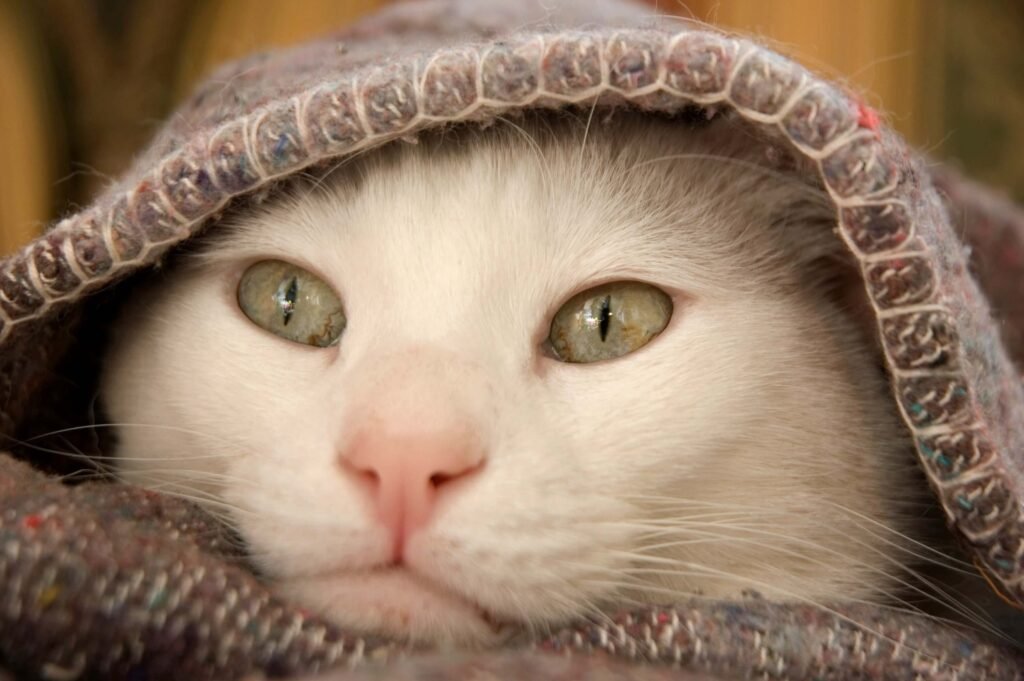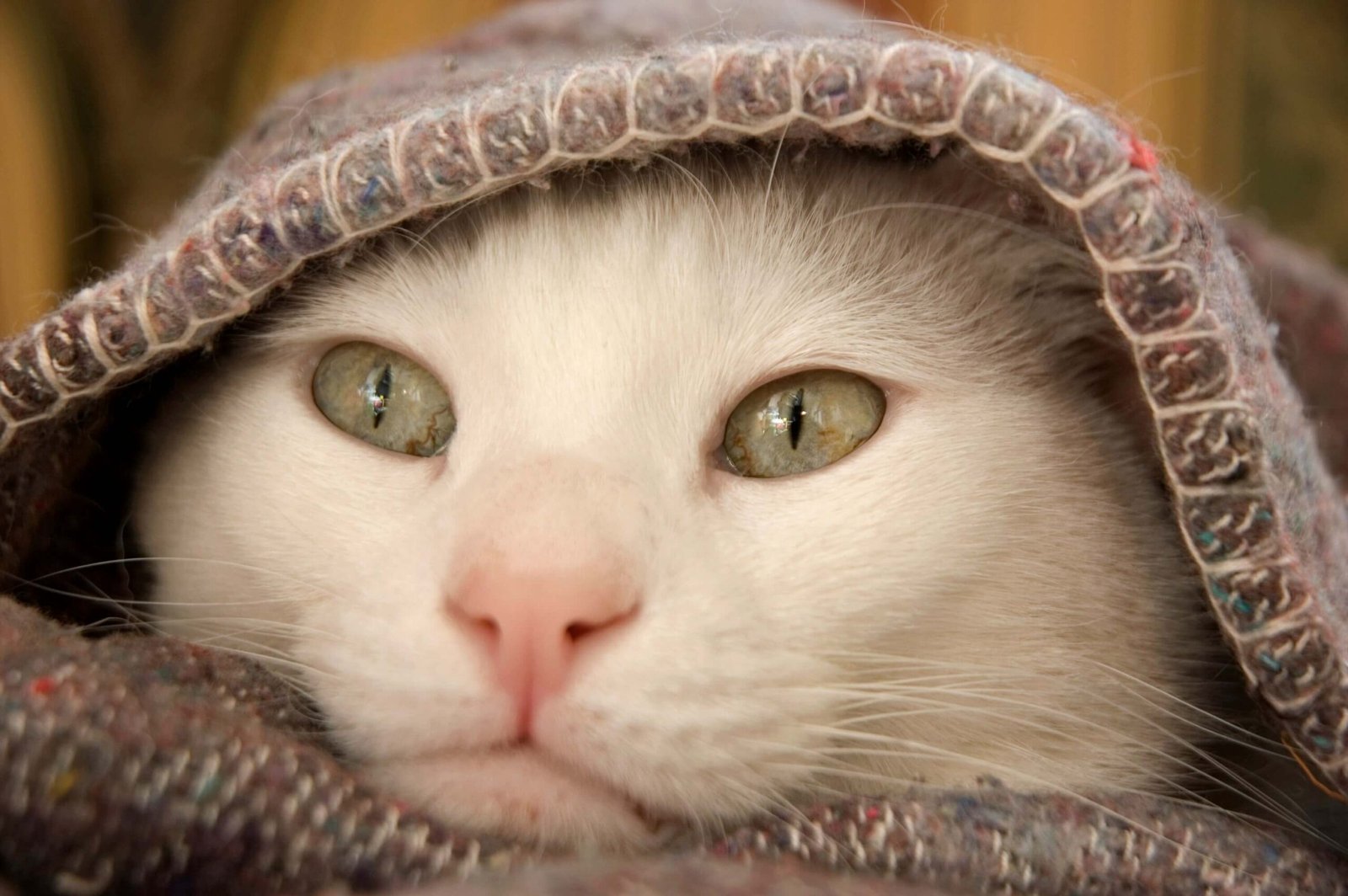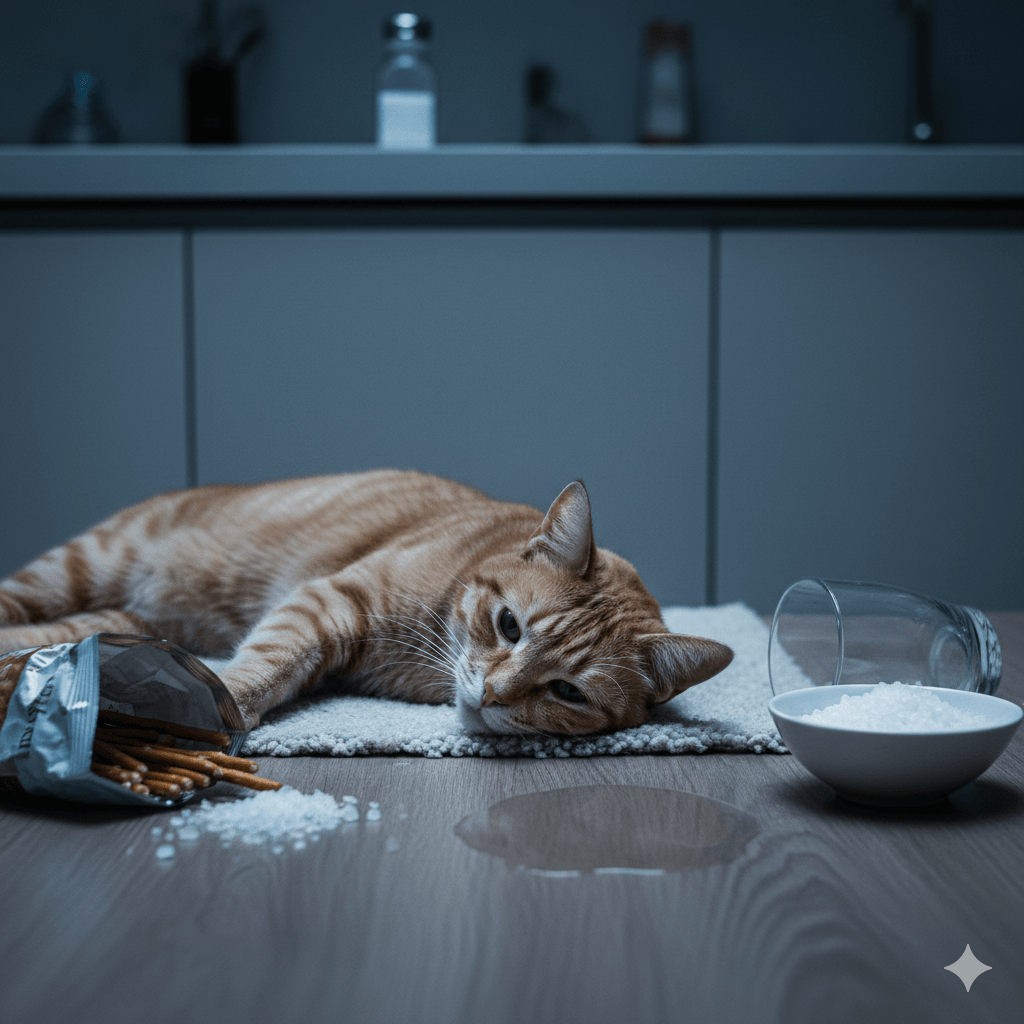Understanding Cat Leaking Urine While Resting: What You Need to Know
Cats are known for their cleanliness and meticulous grooming habits. So, when you notice your feline friend leaking urine while resting, it can be alarming and confusing. This behavior is not only unusual but also indicative of an underlying issue that needs attention. Whether you’re a seasoned cat owner or new to the world of feline companions, understanding why this happens is crucial for ensuring your pet’s well-being. In this blog post, we’ll explore the potential causes, symptoms, and solutions to help you address this delicate situation with confidence.
Common Causes of Urine Leakage in Cats
When a cat leaks urine while resting, it’s often a sign of an underlying health issue. To better understand this problem, let’s break down the most common causes:
Urinary Tract Infections (UTIs)
These infections can irritate the bladder and urethra, leading to involuntary urine leakage.Bladder Stones or Crystals
Mineral deposits in the urinary tract can cause blockages and discomfort, resulting in leaks.Feline Lower Urinary Tract Disease (FLUTD)
This umbrella term covers various conditions affecting the bladder and urethra, often causing leakage.Diabetes or Kidney Disease
Chronic illnesses like diabetes or kidney issues can lead to increased urination and accidents.Weakness in the Urethral Sphincter
Age or injury can weaken the muscles responsible for controlling urine flow.
Understanding these potential causes is the first step toward helping your cat. If you suspect any of these issues, consulting a veterinarian is essential for proper diagnosis and treatment.
Symptoms to Watch For
Leaking urine isn’t always the only sign that something might be wrong with your cat. Here are additional symptoms that could accompany this issue:
Excessive Licking of the Genital Area
Cats may lick excessively in an attempt to relieve discomfort or irritation.Straining to Urinate
Difficulty or pain during urination is a red flag that should not be ignored.Blood in the Urine
The presence of blood indicates a serious issue requiring immediate veterinary attention.Increased Thirst and Urination
These symptoms often point to systemic conditions like diabetes or kidney disease.Changes in Behavior
Lethargy, hiding, or aggression can signal pain or stress related to urinary problems.
By staying vigilant and observing your cat’s behavior, you can catch potential problems early and seek timely medical intervention.
Check this guide 👉My Cat Peed on My Bed Right in Front of Me: Best 7 Tips!
Check this guide 👉How to Find Cat Pee: Best 7 Expert Tips!

Preventive Measures | Why It Helps |
|---|---|
Provide a Balanced Diet | Ensures proper urinary health and prevents stones. |
Keep the Litter Box Clean | Encourages regular use and reduces stress. |
Schedule Regular Vet Check-Ups | Detects issues early before they worsen. |
Monitor Water Intake | Prevents dehydration and supports kidney health. |
Reduce Stress in the Environment | Minimizes anxiety-related urinary issues. |
Treatment Options for Urine Leakage
Once a veterinarian has diagnosed the cause of your cat’s urine leakage, several treatment options may be recommended. Here are some common approaches:
Antibiotics for Infections
If a UTI is the culprit, antibiotics can clear up the infection and stop the leakage.Dietary Changes
Specialized diets can dissolve crystals or prevent the formation of bladder stones.Medications for Muscle Control
Drugs that strengthen the urethral sphincter can help manage incontinence.Surgery for Severe Cases
In cases of blockages or structural issues, surgery may be necessary.Fluid Therapy
Administering fluids can flush out toxins and improve kidney function.
Each treatment plan is tailored to your cat’s specific needs, so following your vet’s recommendations is key to success.
Tips for Supporting Your Cat at Home
While professional treatment is vital, there are also ways you can support your cat’s recovery and comfort at home:
Create a Calm Environment
A stress-free space can reduce anxiety-related urinary issues.Encourage Hydration
Offer fresh water frequently or consider a cat water fountain to entice drinking.Use Absorbent Bedding
Protect your furniture by providing waterproof or absorbent bedding.Maintain a Routine
Consistency in feeding, playtime, and litter box cleaning helps reduce stress.Monitor Progress
Keep track of changes in symptoms to report back to your vet.
By combining professional care with these supportive measures, you can help your cat recover faster and feel more comfortable.
Preventive Measures to Minimize Urinary Issues
Taking preventive steps can significantly reduce the risk of urinary problems in cats. Simple changes in your routine and environment can make a big difference in maintaining your cat’s health. Here are some actionable tips:
Provide Fresh Water Daily
Ensure your cat always has access to clean, fresh water to stay hydrated.Offer a Balanced Diet
Feed high-quality food that supports urinary health and avoids ingredients that may cause stones.Encourage Exercise
Regular playtime keeps your cat active and helps maintain a healthy weight.Limit Stressful Situations
Avoid sudden changes in the household that could upset your cat.Clean the Litter Box Frequently
A tidy litter box encourages regular use and prevents accidents.
By incorporating these habits into your daily routine, you can help your cat stay healthy and reduce the likelihood of urinary issues.
Signs Your Cat May Be Experiencing Discomfort
Cats are masters at hiding pain, but certain behaviors can signal they’re not feeling well. If you notice any of these signs, it’s important to pay attention and act promptly:
Frequent Trips to the Litter Box
Your cat may be trying to urinate more often than usual without success.Vocalizing During Rest
Whining or meowing while resting could indicate discomfort or pain.Loss of Appetite
A sudden disinterest in food is a common sign of illness in cats.Hiding More Than Usual
Cats often retreat when they’re feeling unwell or vulnerable.Unkempt Coat
If your cat stops grooming themselves, it may be due to physical discomfort.
Recognizing these subtle cues can help you identify potential problems early and seek veterinary care before the condition worsens.
Ways to Make Your Home Cat-Friendly
Creating a supportive environment for your cat can go a long way in promoting their overall well-being. A happy and stress-free cat is less likely to develop urinary issues. Consider these adjustments to make your home more cat-friendly:
Designate Quiet Spaces
Provide areas where your cat can retreat and feel safe from noise or activity.Use Soft, Absorbent Bedding
Comfortable bedding can make resting more pleasant and protect furniture from accidents.Install Window Perches
Cats love observing the outdoors, which can provide mental stimulation and reduce boredom.Introduce Toys and Scratching Posts
Interactive toys and scratching posts keep your cat entertained and physically active.Maintain a Consistent Routine
Cats thrive on predictability, so stick to regular feeding and play schedules.
By making your home a haven for your feline friend, you can enhance their quality of life and minimize stress-related issues.
FAQ
Why is my cat leaking urine while resting?
This could be due to urinary tract infections, bladder stones, FLUTD, or other health issues. A vet can determine the exact cause.
Is leaking urine a sign of a serious problem?
Yes, it often indicates an underlying condition that requires medical attention.
Can diet affect my cat’s urinary health?
Absolutely. A balanced diet can prevent issues like bladder stones and support overall urinary health.
How can I prevent urine leakage in my cat?
Regular vet visits, a clean litter box, and stress reduction can all help prevent this issue.
When should I take my cat to the vet?
If you notice persistent leaking, blood in the urine, or behavioral changes, consult a vet immediately.
Taking Action for Your Cat’s Health
Leaking urine while resting is a symptom that shouldn’t be ignored. By understanding the potential causes, recognizing the symptoms, and taking proactive steps, you can ensure your cat receives the care they need. Remember, early intervention is key to preventing complications and improving your cat’s quality of life. With love, patience, and the right support, your feline companion can overcome this challenge and continue to thrive.
Poodle Water Dog: Best 7 Expert Tips! – Discover how Poodles excel in water activities, from swimming to training, and unlock their aquatic potential today.
Salt Poisoning in Cats: Best 7 Expert Tips! – Learn the dangers of salt toxicity, spot symptoms early, and discover how to keep your cat safe from this serious health risk.
Salt Poisoning in Dogs: Best 7 Expert Tips! – Learn the dangers of salt toxicity, recognize symptoms, and discover life-saving steps to protect your dog.
Can Too Much CBD Kill a Cat? Best 7 Expert Tips! – Discover the risks, safe dosages, and signs of CBD toxicity to keep your cat safe and healthy.





